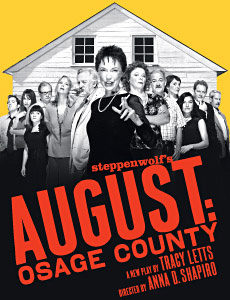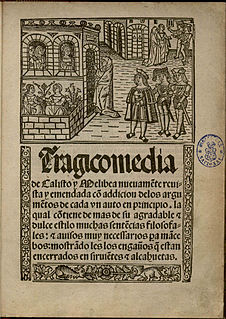 W
WAlcestis is an Athenian tragedy by the ancient Greek playwright Euripides. It was first produced at the City Dionysia festival in 438 BC. Euripides presented it as the final part of a tetralogy of unconnected plays in the competition of tragedies, for which he won second prize; this arrangement was exceptional, as the fourth part was normally a satyr play. Its ambiguous, tragicomic tone—which may be "cheerfully romantic" or "bitterly ironic"—has earned it the label of a "problem play." Alcestis is, possibly excepting the Rhesus, the oldest surviving work by Euripides, although at the time of its first performance he had been producing plays for 17 years.
 W
WAmphitryon or Amphitruo is a Latin play for the early Roman theatre by playwright Titus Maccius Plautus. It is Plautus’ only play on a mythological subject; he refers to it as a tragicomoedia in the prologue. The play is mostly extant, but includes several large missing sections in its latter portion. The plot of the play involves Amphitryon’s jealous and confused reaction to Alcmena’s seduction by Jupiter, and ends with the birth of Hercules.
 W
WAugust: Osage County is a tragicomedy play by Tracy Letts. It was the recipient of the 2008 Pulitzer Prize for Drama. The play premiered at the Steppenwolf Theatre in Chicago on June 28, 2007, and closed on August 26, 2007. It had its Broadway debut at the Imperial Theater on December 4, 2007, and the production transferred to the Music Box Theatre on April 29, 2008. The Broadway show closed on June 28, 2009, after 648 performances and 18 previews.
 W
WThe Tragicomedy of Calisto and Melibea, known in Spain as La Celestina is a work entirely in dialogue published in 1499. It is attributed to Fernando de Rojas, a descendant of converted Jews, who practiced law and, later in life, served as an alderman of Talavera de la Reina, an important commercial center near Toledo.
 W
WLe Cid is a five-act French tragicomedy written by Pierre Corneille, first performed in December 1636 at the Théâtre du Marais in Paris and published the same year. It is based on Guillén de Castro's play Las Mocedades del Cid. Castro's play in turn is based on the legend of El Cid.
 W
WCreditors is a naturalistic tragicomedy by the Swedish playwright August Strindberg. It was written in Swedish during August and September 1888 in Denmark. It was first published in Danish in February 1889 and appeared in Swedish in 1890. It premiered at the Dagmar Theatre in Copenhagen in March 1889. It is seen as one of Strindberg's most powerful plays. Strindberg himself, writing in 1892, described it as his "most mature work."
 W
WCymbeline, also known as The Tragedie of Cymbeline or Cymbeline, King of Britain, is a play by William Shakespeare set in Ancient Britain and based on legends that formed part of the Matter of Britain concerning the early Celtic British King Cunobeline. Although listed as a tragedy in the First Folio, modern critics often classify Cymbeline as a romance or even a comedy. Like Othello and The Winter's Tale, it deals with the themes of innocence and jealousy. While the precise date of composition remains unknown, the play was certainly produced as early as 1611.
 W
WA Fair Quarrel is a Jacobean tragicomedy, a collaboration between Thomas Middleton and William Rowley that was first published in 1617.
 W
WL'Illusion comique is a comedic play written by Pierre Corneille in 1636. In its use of meta-theatricality (plays-within-the-play), it is far ahead of its time. It was first performed at the Hôtel de Bourgogne in 1636 and published in 1639.
 W
WA King and No King is a Jacobean era stage play, a tragicomedy written by Francis Beaumont and John Fletcher and first published in 1619. It has traditionally been among the most highly praised and popular works in the canon of Fletcher and his collaborators.
 W
WThe History of King Lear is an adaptation by Nahum Tate of William Shakespeare's King Lear. It first appeared in 1681, some seventy-five years after Shakespeare's version, and is believed to have replaced Shakespeare's version on the English stage in whole or in part until 1838.
 W
WThe Morality of Mrs. Dulska is a play by Gabriela Zapolska that debuted in Kraków in 1906. Hailed as a key work in early modern Polish drama, Zapolska's play tackles issues of social justice, socialism, morality, conscience, and the performative duality of social identity. It has inspired many film adaptations and has appeared on stage in many forms, even as a musical comedy.
 W
WIl pastor fido is a pastoral tragicomedy set in Arcadia by Giovanni Battista Guarini, first published in 1590 in Venice.
 W
WPericles, Prince of Tyre is a Jacobean play written at least in part by William Shakespeare and included in modern editions of his collected works despite questions over its authorship, as it was not included in the First Folio. Various arguments support the theory that Shakespeare was the sole author of the play, notably in DelVecchio and Hammond's Cambridge edition of the play, but modern editors generally agree that Shakespeare was responsible for almost exactly half the play — 827 lines — the main portion after scene 9 that follows the story of Pericles and Marina. Modern textual studies suggest that the first two acts, 835 lines detailing the many voyages of Pericles, were written by a collaborator, who may well have been the victualler, panderer, dramatist and pamphleteer George Wilkins.
 W
WRosencrantz and Guildenstern Are Dead is an absurdist, existential tragicomedy by Tom Stoppard, first staged at the Edinburgh Festival Fringe in 1966. The play expands upon the exploits of two minor characters from Shakespeare's Hamlet, the courtiers Rosencrantz and Guildenstern. The main setting is Denmark.
 W
WA Slight Ache is a tragicomic play written by Harold Pinter in 1958 and first published by Methuen in London in 1961. It concerns a married couple's dreams and desires, focusing mostly on the husband's fears of the unknown, of growing old, and of the "Other" as a threat to his self-identity.
 W
WThe Tempest is a play by English playwright William Shakespeare, probably written in 1610–1611, and thought to be one of the last plays that Shakespeare wrote alone. After the first scene, which takes place on a ship at sea during a tempest, the rest of the story is set on a remote island, where the sorcerer Prospero, a complex and contradictory character, lives with his daughter Miranda, and his two servants—Caliban, a savage monster figure, and Ariel, an airy spirit. The play contains music and songs that evoke the spirit of enchantment on the island. It explores many themes, including magic, betrayal, revenge, and family. In Act IV, a wedding masque serves as a play-within-a-play, and contributes spectacle, allegory, and elevated language.
 W
WThe Two Noble Kinsmen is a Jacobean tragicomedy, first published in 1634 and attributed jointly to John Fletcher and William Shakespeare. Its plot derives from "The Knight's Tale" in Geoffrey Chaucer's The Canterbury Tales, which had already been dramatised at least twice before. This play is believed to have been William Shakespeare's final play before he retired to Stratford-Upon-Avon and died three years later.
 W
WWaiting for Godot is a play by Samuel Beckett in which two characters, Vladimir (Didi) and Estragon (Gogo), engage in a variety of discussions and encounters while awaiting the titular Godot, who never arrives. Waiting for Godot is Beckett's translation of his own original French-language play, En attendant Godot, and is subtitled "a tragicomedy in two acts". The original French text was composed between 9 October 1948 and 29 January 1949. The premiere, directed by Roger Blin, was on 5 January 1953 at the Théâtre de Babylone, Paris. The English-language version premiered in London in 1955. In a poll conducted by the British Royal National Theatre in 1998/99, it was voted the "most significant English language play of the 20th century".
 W
WThe Wild Duck is an 1884 play by the Norwegian playwright Henrik Ibsen. It is considered the first modern masterpiece in the genre of tragicomedy. The Wild Duck and Rosmersholm are "often to be observed in the critics' estimates vying with each other as rivals for the top place among Ibsen's works."
 W
WThe Winter's Tale is a play by William Shakespeare originally published in the First Folio of 1623. Although it was grouped among the comedies, many modern editors have relabelled the play as one of Shakespeare's late romances. Some critics consider it to be one of Shakespeare's "problem plays" because the first three acts are filled with intense psychological drama, while the last two acts are comic and supply a happy ending.
 W
WWoman in Mind is the 32nd play by English playwright, Alan Ayckbourn. It was premiered at the Stephen Joseph Theatre In The Round, Scarborough, in 1985. Despite pedestrian reviews by many critics, strong audience reaction resulted in a transfer to London's West End. The play received its London opening at the Vaudeville Theatre in 1986 where it received predominantly excellent reviews.